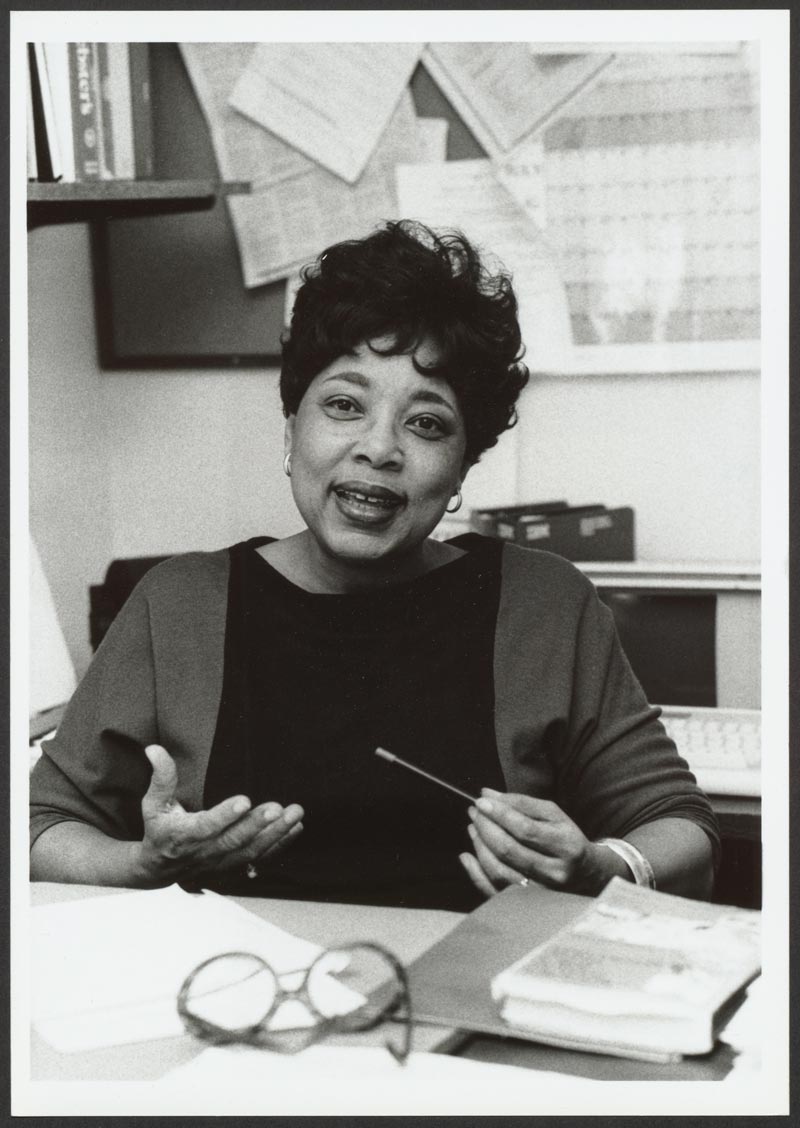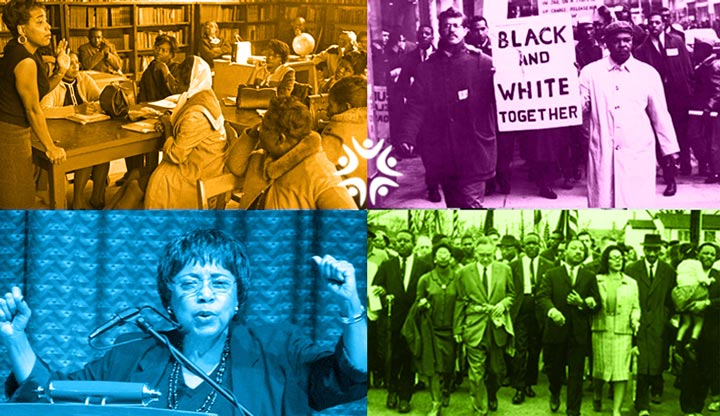About the Dorothy Cotton Institute
DCI's Vision
- The full realization of a just and peaceful Beloved Community in which all people understand, respect, protect and exercise full human rights and participate effectively in making democracy work.
- We believe that with a global community of human rights leadership, and a well-informed, inspired and motivated population, in the United States and elsewhere, the goal of human rights for all can be achieved.
DCI's Mission
- To inspire, educate, train, nurture and support people for effective civic participation and human rights leadership.
- To collaborate with others, locally and globally, to build networks and communities of civil and human rights leaders.
- To explore, share and promote practices that inspire and transform individuals and communities, opening new pathways to peace, justice and healing.
DCI's History
Founded in 2008, the Dorothy Cotton Institute honors and perpetuates the legacy of Ms. Dorothy Cotton, a brilliant educator, organizer, and courageous shero of the Civil Rights movement.
Ms. Cotton's lifework - based on the philosophy and practices of nonviolence, reconciliation and restoration, and grassroots leadership development - offers a valuable model upon which the Dorothy Cotton Institute builds, embracing universal human rights.
As Education Director of the Southern Christian Leadership Conference (SCLC) throughout the 1960s, and Ms. Cotton co-led the Citizenship Education Program (CEP) with Septima Clark and Andrew Young. The CEP equipped tens of thousands of people to name what was intolerable in their circumstances, identify the changes they desired, to learn and exercise their civil rights and prepare for nonviolent democratic action. CEP participants transformed themselves from a “victim” mindset to one of fully engaged “citizenship”, crafting courageous strategies to educate and mobilize their communities to vote and ultimately, to dismantle Jim Crow*. The CEP pedagogy taps into people's inherent courage, dignity and thirst for justice, unleashing our ability to solve our own problems brilliantly and collaboratively.
"When those who are victimized become committed to changing an unjust and brutal system, no longer accepting victim status, change happens. Systems that maintain patterns of injustice will have to change."
*Jim Crow laws: the legalized practice of systematic racial segregation, discrimination and the enforcement through structural violence.

DCI's Values
To realize a sustainable, global Beloved Community:
- The inherent dignity, worth and spirit of every person.
- Our shared humanity and relationship to all others (ubuntu)* which gives meaning to each individual life.
- The conscientious recognition of and respect for the interdependent web of all life
- The development of self-awareness and relationships through reflection, listening, dialogue, critical inquiry, and engaged participation with others.
- Nonviolence, peacemaking, reconciliation and love (agape) as means to change, and as ends.
- The right and responsibility of all people for engaged participation in the decisions that impact their lives.
- Diverse ways of knowing and teaching—conceptual, practical, experiential, and cultural—that honor past struggles, nurture the human spirit, and engage widespread participation.
*Ubuntu (Nguni language group) captures the notion that "my humanity is inextricably bound up in yours, and that what dehumanizes you inexorably dehumanizes me.” It encompasses generosity, hospitality, caring, compassion and a sense of belonging to a greater whole.
Beloved Community
is a body of people grounded in principles of caring and support for all All members who hold values that promote peace, justice and nonviolence in both spirit and deed.
Belonging to and building a multiracial, multicultural “Beloved Community” was a central tenet of the U.S. Civil Rights Movement, and it is central to DCI's work as well.
In a Beloved Community, people live and work with recognition of the connectedness of all sentient beings and the natural world. Everyone feels a sense of belonging and connection to each other. As others are welcomed, there is acceptance and appreciation for variety in cultural expression and spiritual practices. There is an overarching desire to affirm and support everyone's right and expectation to be supported in their journey toward a peaceful and fulfilled life. Everyone, from children to elders, feels support in pursuing goals toward their life work. The love ethic prevails and is manifest in all aspects of community life.

